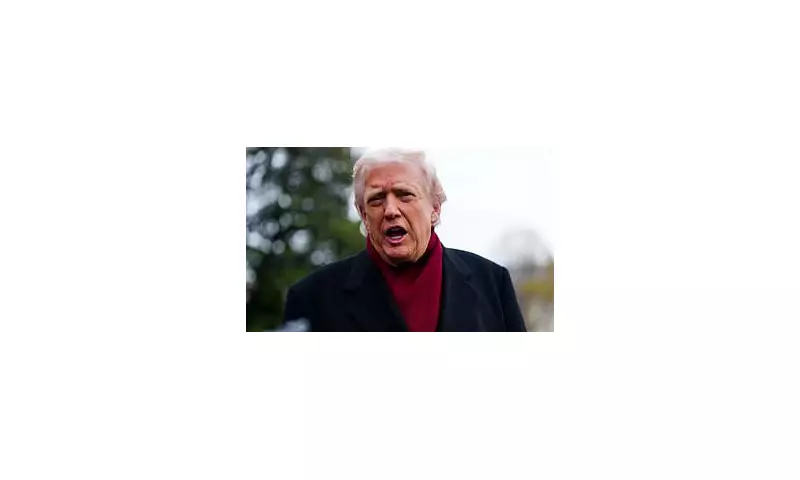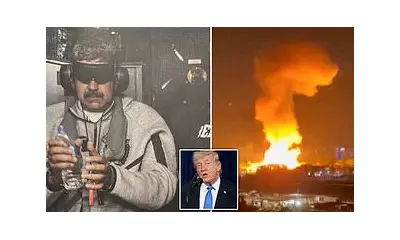
In a dramatic development that could reshape European security, Western nations have made significant concessions to Moscow during intensive peace negotiations aimed at ending the three-year conflict in Ukraine.
Breakthrough in Geneva Talks
During crucial discussions in Switzerland, Britain joined other major powers in agreeing to welcome Russia back into the G8 group of leading global economies. This marks a stunning reversal from 2014 when Russia was expelled from the international political forum following its annexation of Crimea.
The agreement in principle emerged from Geneva where American, Ukrainian and European officials have been examining peace proposals from both conflict parties and their supporters. The United States had been particularly vocal in pushing for Russia's return to the diplomatic top table.
Military Capabilities and Territorial Disputes
Ukraine secured one notable victory as negotiators agreed to increase the proposed cap on its armed forces from 600,000 to 800,000 troops. However, other aspects of the emerging deal remain deeply contentious.
Russian President Vladimir Putin continues to insist that Ukraine must surrender remaining territory it controls in eastern provinces. This demand represents a stated red line for Ukraine and its allies, including Britain, who have consistently opposed any settlement that sacrifices land beyond what Russia currently occupies.
The negotiations unfolded against a backdrop of diplomatic turbulence, with former US President Donald Trump launching a furious verbal assault on Ukraine's political leadership. Taking to Truth Social, Trump wrote in capital letters: 'Ukraine 'leadership' has expressed zero gratitude for our efforts, and Europe continues to buy oil from Russia.'
Competing Peace Plans and Timelines
The White House has presented Ukraine with a stark ultimatum, giving the country until Thanksgiving this Thursday to accept terms or face the withdrawal of American military support. US officials are advancing a 28-point peace plan developed during secret talks with Russia that notably excluded Ukrainian and European input.
Meanwhile, Ukraine's European partners have published their own peace proposal, which includes provisions for Ukraine retaining control of the Donbas industrial heartland and maintaining freedom to join international alliances.
Britain has been actively engaged in the diplomatic push, with Prime Minister Sir Keir Starmer speaking to President Trump for the second time in as many days. Downing Street confirmed the leaders discussed aspects of both peace plans intended to establish lasting peace.
The Royal Navy's recent interception of two Russian warships in the English Channel within the past fortnight underscores the ongoing tensions despite diplomatic progress.
Divergent Positions on Key Issues
Substantial differences remain between the competing proposals:
Territory: While Ukraine and its allies acknowledge that regaining Russian-occupied eastern Ukraine and Crimea appears unlikely, they firmly reject surrendering any additional territory. The US-Russia plan demands Ukraine cede the entire Donbas region.
International Alliances: Ukraine insists on preserving its sovereignty to pursue membership in organisations like the European Union and NATO. The alternative framework would force Ukraine into neutrality and prohibit such alliances.
Sanctions and Reconstruction: The Western position calls for gradual sanctions relief contingent on Russian compliance, with reconstruction funded through frozen Russian assets. The competing plan envisions immediate sanctions removal and a development fund without clear Russian financial responsibility.
Despite the challenges, US Secretary of State Marco Rubio expressed optimism, describing recent talks as 'probably [the] best meeting and day we've had so far in this entire process.'
Ukrainian President Volodymyr Zelensky also struck a cautiously positive note, indicating that American proposals might incorporate elements of Ukraine's vision while reiterating gratitude for American military and intelligence support.
Any Russian return to the G8 would likely be conditional on Moscow meeting commitments in other areas, including compensating Ukraine and observing a ceasefire. As the Thanksgiving deadline approaches, the diplomatic manoeuvring continues at an intense pace, with the future of European security hanging in the balance.





